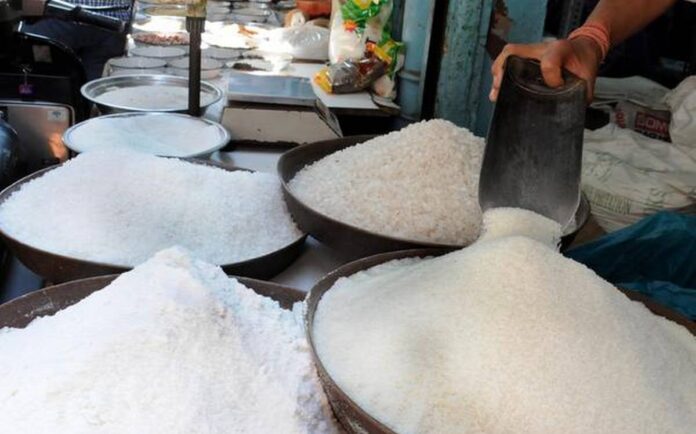The government has acknowledged that sugar prices have surged to nearly Rs190 per kilogram in most cities across the country, prompting a decision to import 500,000 metric tons of sugar to address the shortfall.
According to media reports, the admission followed a meeting of the National Price Monitoring Committee (NPMC), chaired by Federal Minister for Planning Ahsan Iqbal, to review inflation trends and pricing mechanisms.
According to a statement issued by the Ministry of Planning, Development, and Special Initiatives, sugar prices have increased significantly, with some areas reporting a maximum price of Rs 196 per kilogram.
The price hike follows the government’s decision to export 765,000 metric tons of sugar, claiming surplus stocks before the export, which initially kept prices at Rs140 per kilogram. This export move caused a 40% price increase.
The Planning Ministry also reported a decline in domestic sugar production, dropping to 5.8 million tons this year, down from 6.8 million tons. In response, the Ministry of Food has planned the importation of 500,000 tons to stabilize the market.
During the NPMC meeting, the Chief Statistician presented inflation data indicating a decrease in the inflation rate for the fiscal year 2024-25, which stood at 4.5%, a sharp drop from 23.4% in the previous year. Food inflation in urban areas was recorded at 4.2%, compared to 6.2% last year. However, supply chain disruptions due to road closures in Sindh have contributed to localized price fluctuations.
Minister Ahsan Iqbal also highlighted the underutilization of the Price Scorecard system by provincial administrations, with Khyber Pakhtunkhwa showing the most engagement. He directed that login reports be provided to chief secretaries monthly and emphasized regular price comparisons by deputy commissioners.
In the meeting, the Competition Commission of Pakistan (CCP) was tasked with determining fair profit margins for wholesale and retail trade in food items, but the decision remains unimplemented. The CCP clarified that any form of collective price-setting is inconsistent with its role.
Additionally, provincial governments have been urged to strengthen their price monitoring systems and enhance the use of the Decision Support System for Inflation (DSSI).




